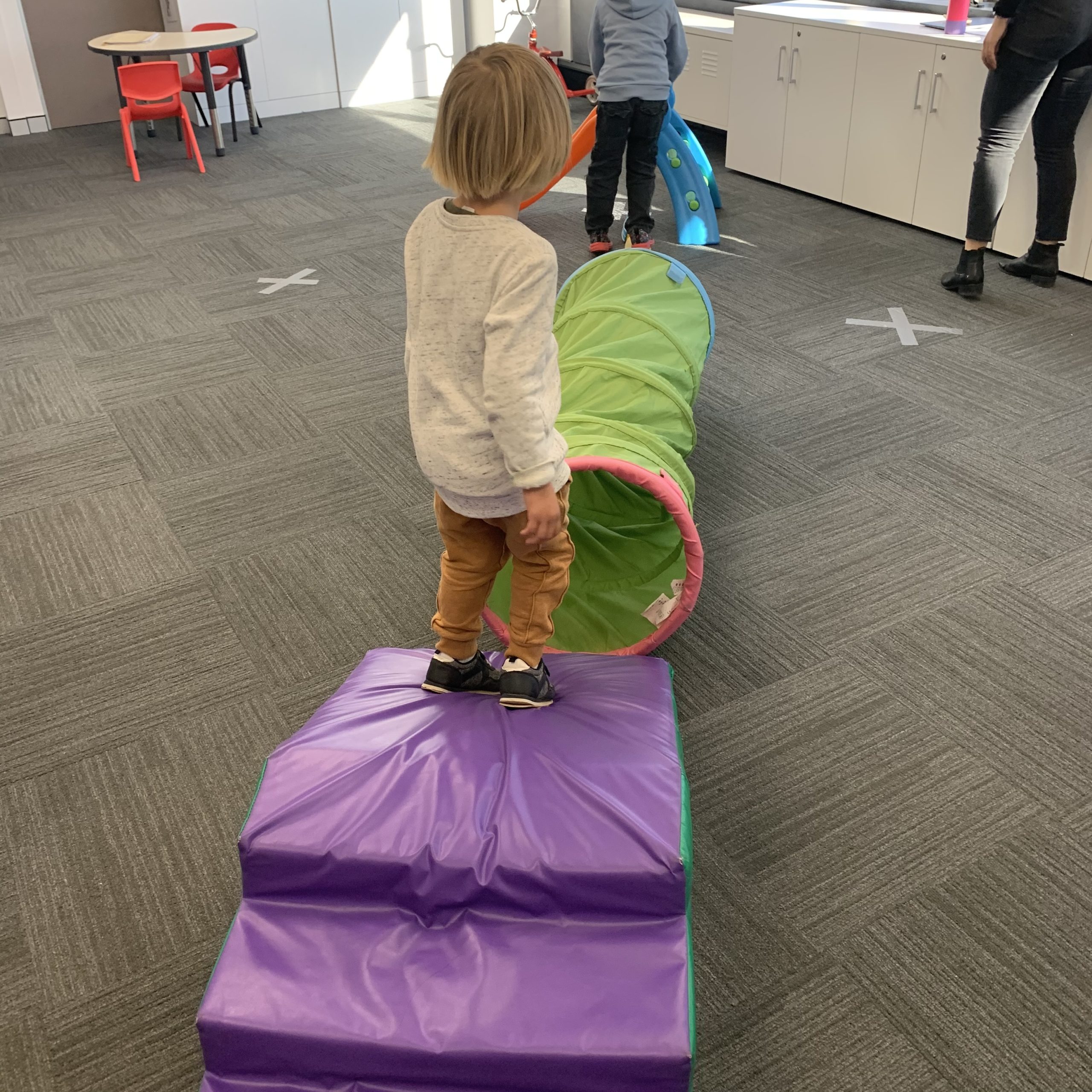
The Benefits of Obstacle Courses for Children: How Occupational Therapy in Bondi Junction and Mascot Can Help
Obstacle courses are more than just a fun way for children to play. They serve as an effective tool in Occupational Therapy (OT), offering numerous developmental benefits for children. At OneOnOne Children’s Therapy in Bondi Junction and Mascot, we regularly incorporate obstacle courses into therapy sessions to support children’s growth in key areas, such as physical coordination, social interaction, and emotional regulation.
Physical Benefits of Obstacle Courses
Obstacle courses encourage movement and help children develop essential gross and fine motor skills. Some of the key physical benefits include:
- Improved Coordination and Balance: Children learn to navigate uneven surfaces, balance on narrow beams, and climb over obstacles. These activities enhance their ability to control their body movements, making everyday tasks like walking and playing sports easier.
- Strength and Endurance: Climbing, jumping, and crawling build both muscle strength and cardiovascular endurance. These activities promote overall fitness, helping children develop strong muscles and improve their stamina for physical activities.
- Gross Motor Skills Development: Obstacle courses engage large muscle groups, crucial for tasks such as running, jumping, and climbing. Regular participation in these activities helps children become more agile, improving their overall motor development.
- Fine Motor Skills: Some obstacle courses involve tasks like threading a rope through holes or picking up small objects. These activities strengthen a child’s fine motor skills, which are necessary for writing, drawing, and buttoning clothes.
Cognitive and Emotional Benefits
Obstacle courses in Occupational Therapy also provide substantial cognitive and emotional growth, which is essential for children’s everyday life and schooling:
- Problem-Solving Skills: As children work through each challenge in an obstacle course, they develop critical problem-solving abilities. They must think through how to complete each task and adjust their strategies if something doesn’t work.
- Focus and Concentration: Completing an obstacle course requires focus, and children must pay close attention to their movements and surroundings. This practice can improve their attention span, helping them concentrate better in school and other areas of life.
- Boost in Confidence and Self-Esteem: Each obstacle successfully completed gives children a sense of achievement. This confidence encourages them to take on new challenges, helping to build a positive self-image.
- Emotional Regulation: Physical activity, like the kind involved in obstacle courses, helps release endorphins, which reduce stress and promote happiness. Children who participate in these activities often find it easier to manage their emotions and deal with frustration.
Social and Creative Benefits
Social interaction and creativity also play a big role in Occupational Therapy sessions using obstacle courses:
- Teamwork and Cooperation: Many obstacle courses require group participation, where children must work together to achieve a common goal. This collaboration teaches them the value of communication, teamwork, and helping others.
- Positive Social Interactions: Engaging in obstacle courses with peers offers children a supportive environment where they can build friendships and practice social skills like sharing, taking turns, and encouraging others.
- Imagination and Creativity: Creating and navigating obstacle courses encourages children to use their imagination. Whether they’re building the course themselves or imagining they’re on an adventure, they can tap into their creative thinking.
How Occupational Therapists in Bondi Junction and Mascot Use Obstacle Courses
At OneOnOne Children’s Therapy, our Occupational Therapists in Bondi Junction and Mascot use obstacle courses as a core part of therapy for children with various developmental needs. These courses provide a fun and effective way to address physical, cognitive, and social goals.
For children with conditions like autism, obstacle courses can be particularly beneficial as they engage both the body and mind, helping children practice focus, build social connections, and regulate sensory input in a structured yet fun environment.
When Should You Consider Occupational Therapy?
If you notice that your child is struggling with coordination, motor skills, or social interactions, Occupational Therapy can help. Our Occupational Therapists work closely with parents to create tailored programs that include engaging activities like obstacle courses to address your child’s unique needs.
Get Started with Occupational Therapy Today
At OneOnOne Children’s Therapy, we believe every child should have the opportunity to grow, thrive, and develop the skills needed for a fulfilling life. Whether your child is working on motor skills, social interaction, or emotional regulation, our team of dedicated Occupational Therapists in Bondi Junction and Mascot is here to help. We are proud registered members of AHPRA.
Ready to explore how Occupational Therapy can benefit your child? Contact us at OneOnOne Children’s Therapy to book a free 30-minute phone consultation. Our team will discuss how we can support your child’s unique developmental journey.
Contact Us
Call our Bondi Junction and Mascot clinics at (02) 80657837 or send us an email to learn more about our services. Let us help your child unlock their full potential through engaging and fun therapy activities.
